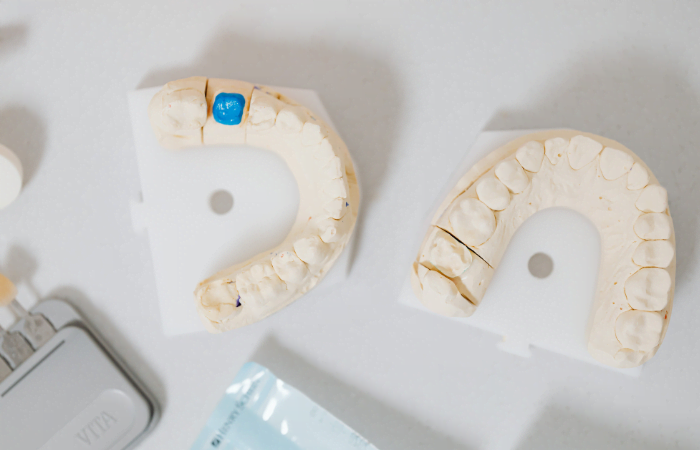
Autoimmune diseases can significantly impact oral health, leading to tooth damage, enamel erosion, and increased sensitivity. Many patients suffering from conditions like rheumatoid arthritis, lupus, or Sjögren’s syndrome experience severe dental issues that require restorative treatments. One of the most effective solutions for protecting and restoring damaged teeth is a dental crown. If you’re wondering whether dental crowns can help with tooth damage caused by autoimmune diseases, this blog will provide the answers you need.
Autoimmune diseases cause the body's immune system to attack its own tissues, leading to various oral health problems, such as:
1] Tooth Enamel Erosion – Conditions like acid reflux (common in autoimmune diseases) can weaken tooth enamel.
2] Dry Mouth (Xerostomia) – Reduced saliva production, often seen in Sjögren’s syndrome, increases the risk of cavities.
3] Gum Disease & Inflammation – Autoimmune disorders can cause gum recession, bleeding, and periodontal disease.
4] Increased Tooth Sensitivity – Thinning enamel makes teeth more prone to pain and discomfort.
5] Tooth Fractures & Decay – Weak enamel and chronic inflammation can lead to cracks or severe decay.
If left untreated, these issues can lead to tooth loss, which is why consulting a dentist near me for treatment is essential.
A dental crown is a custom-made cap placed over a damaged or weakened tooth to restore its shape, strength, and functionality. It offers several benefits for patients with autoimmune-related dental issues:
a] Protects Weakened Teeth – Shields teeth from further decay, fractures, or sensitivity.
b] Restores Functionality – Helps patients chew and speak comfortably.
c] Enhances Aesthetics – Covers discolored or misshapen teeth for a natural look.
d] Long-Term Durability – Offers a lasting solution, preventing further damage.
If you’re experiencing tooth pain or damage, getting a dental crown from a dentist near me can help preserve your smile.
There are various types of dental crowns, and choosing the right one depends on your condition, budget, and dental needs. Here are the most common types:
a] Porcelain Crowns – Best for natural aesthetics, ideal for front teeth.
b] Metal Crowns (Gold or Silver Alloys) – Extremely durable, perfect for molars.
c] Porcelain-Fused-to-Metal (PFM) Crowns – A mix of strength and aesthetics.
d] Zirconia Crowns – Highly durable and biocompatible, perfect for sensitive teeth.
e] Resin Crowns – More affordable but less durable compared to other options.
Your dentist near me will recommend the best crown based on your oral health condition and autoimmune disease impact.
Consider getting a dental crown if you have:
1] Cracked, broken, or decayed teeth due to an autoimmune disease.
2] Severe enamel erosion or tooth sensitivity.
3] A root canal-treated tooth that needs protection.
4] Misshapen or discolored teeth affecting your confidence.
Ignoring these issues can lead to tooth loss and further complications, so don’t delay treatment.